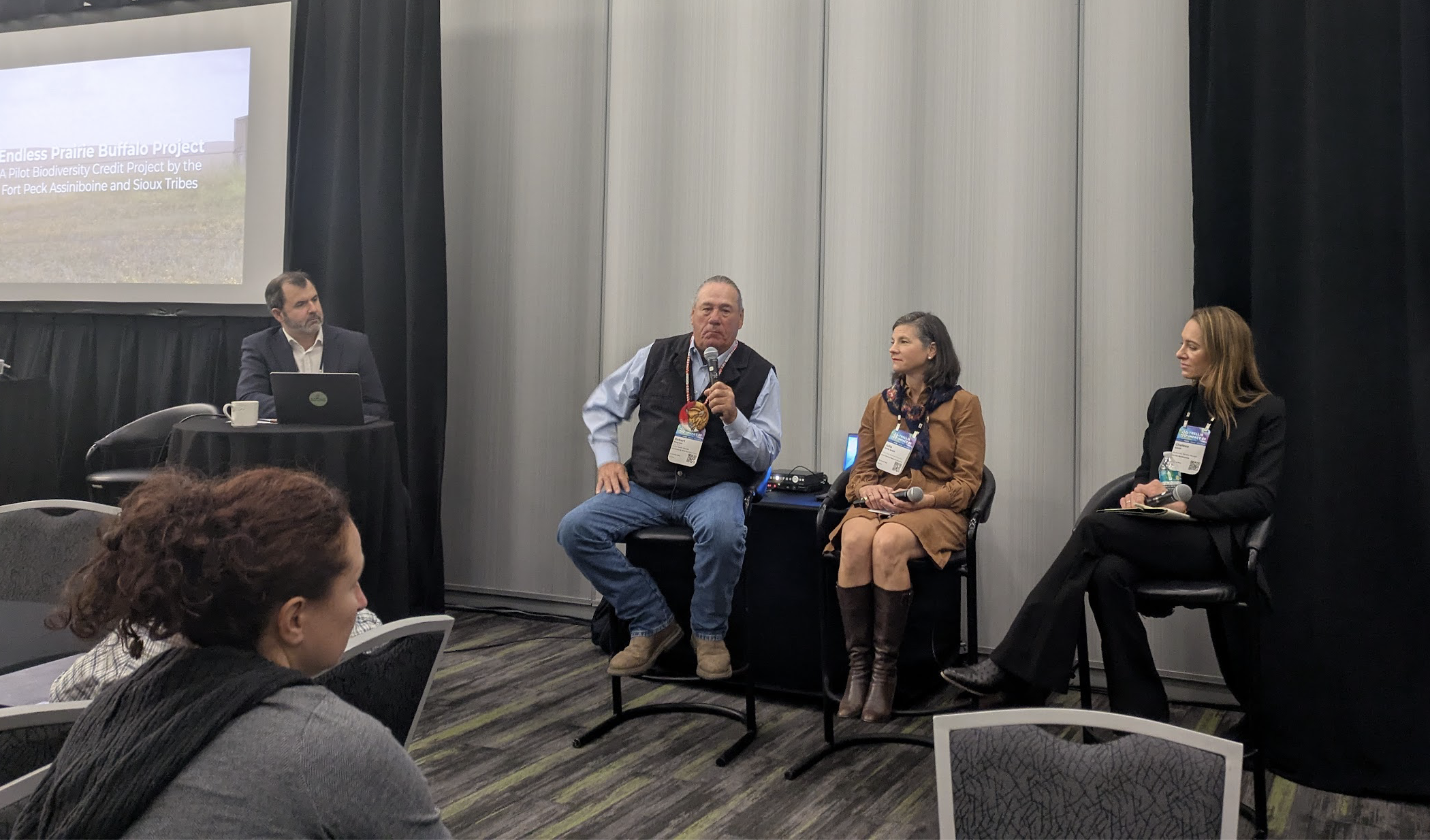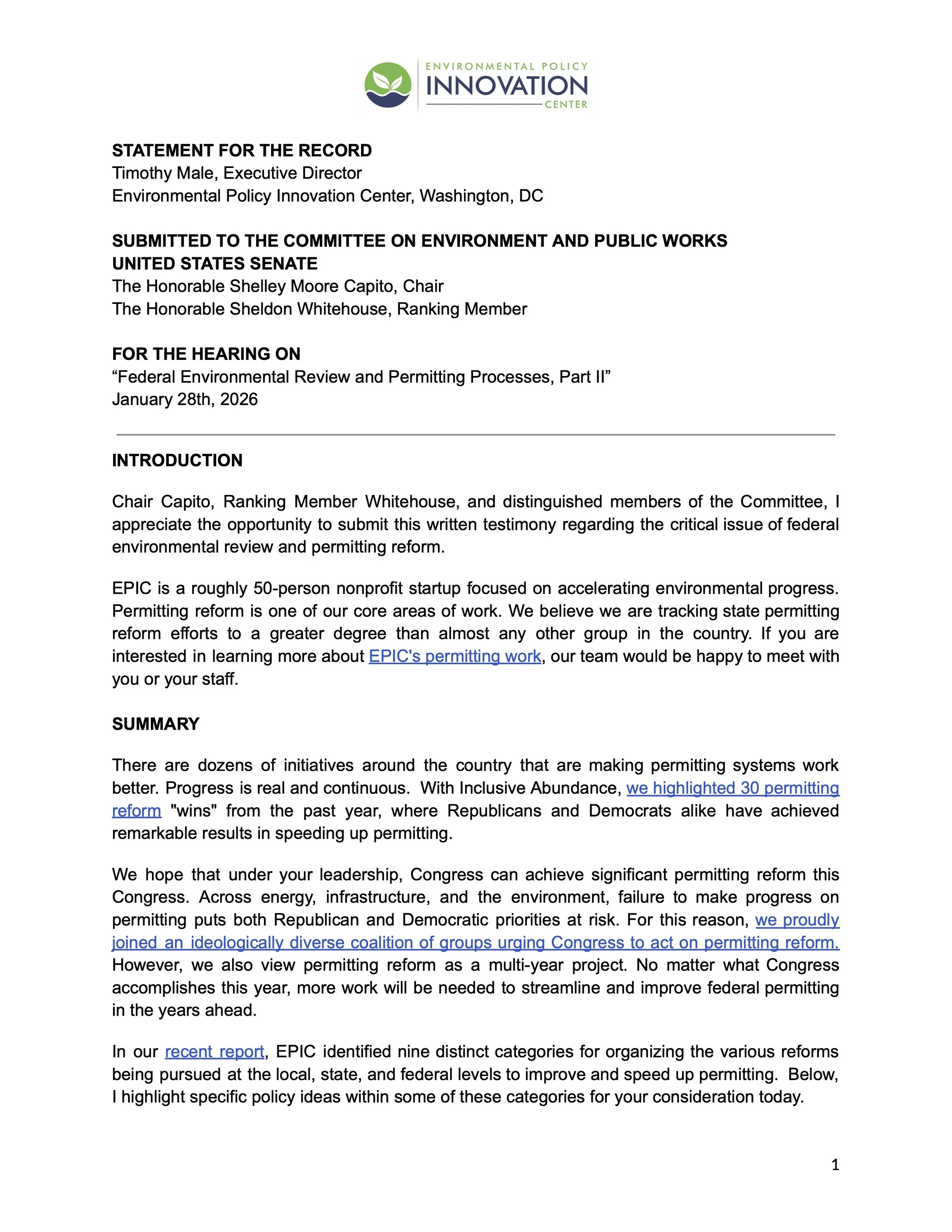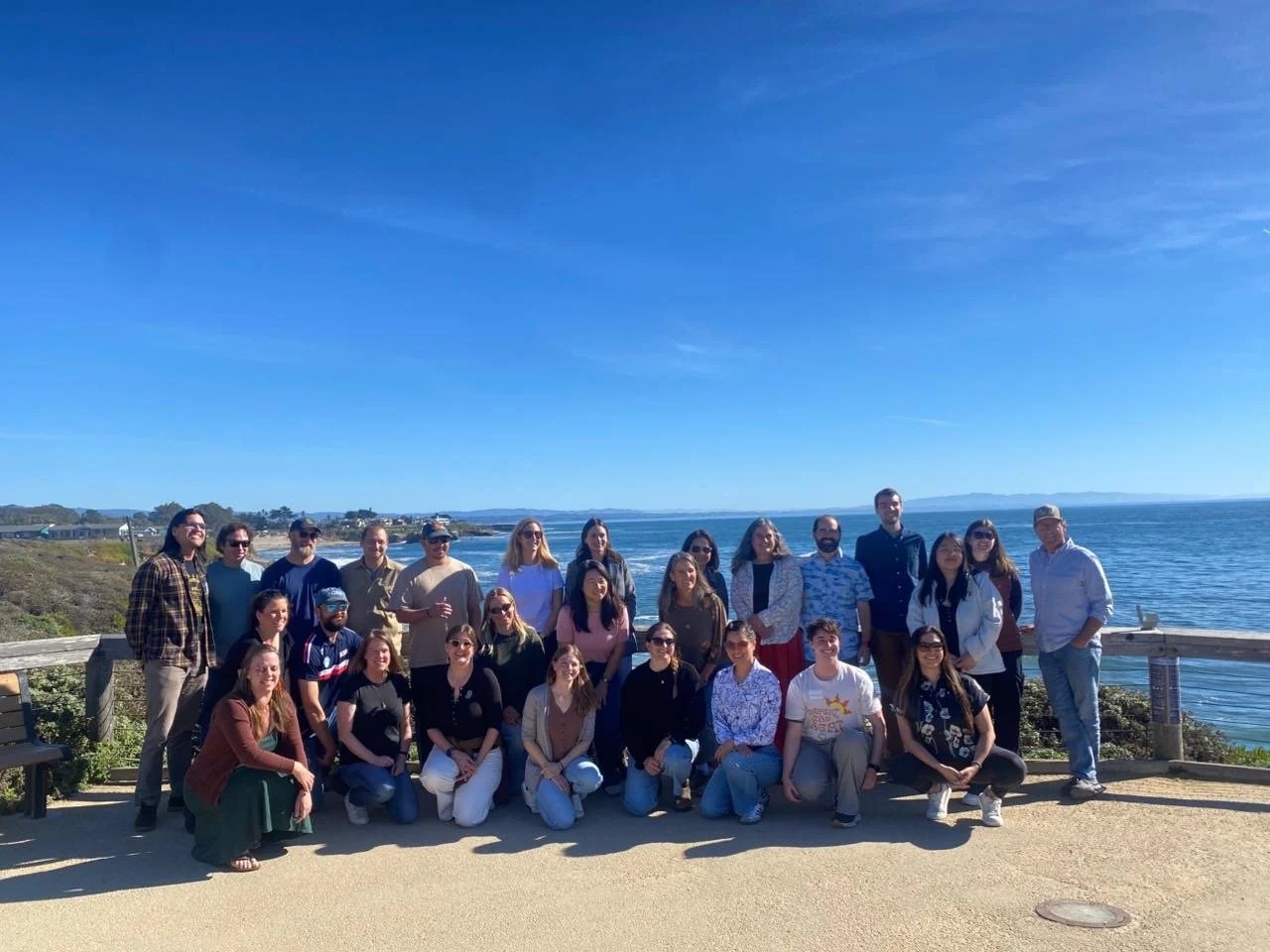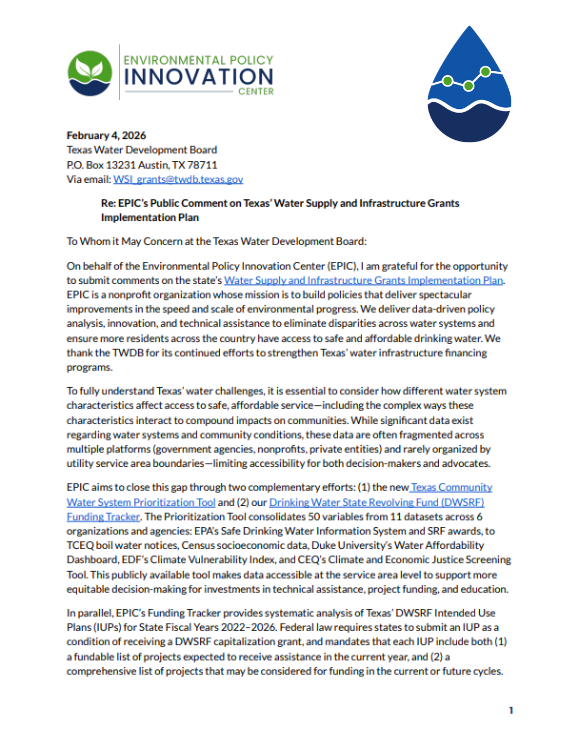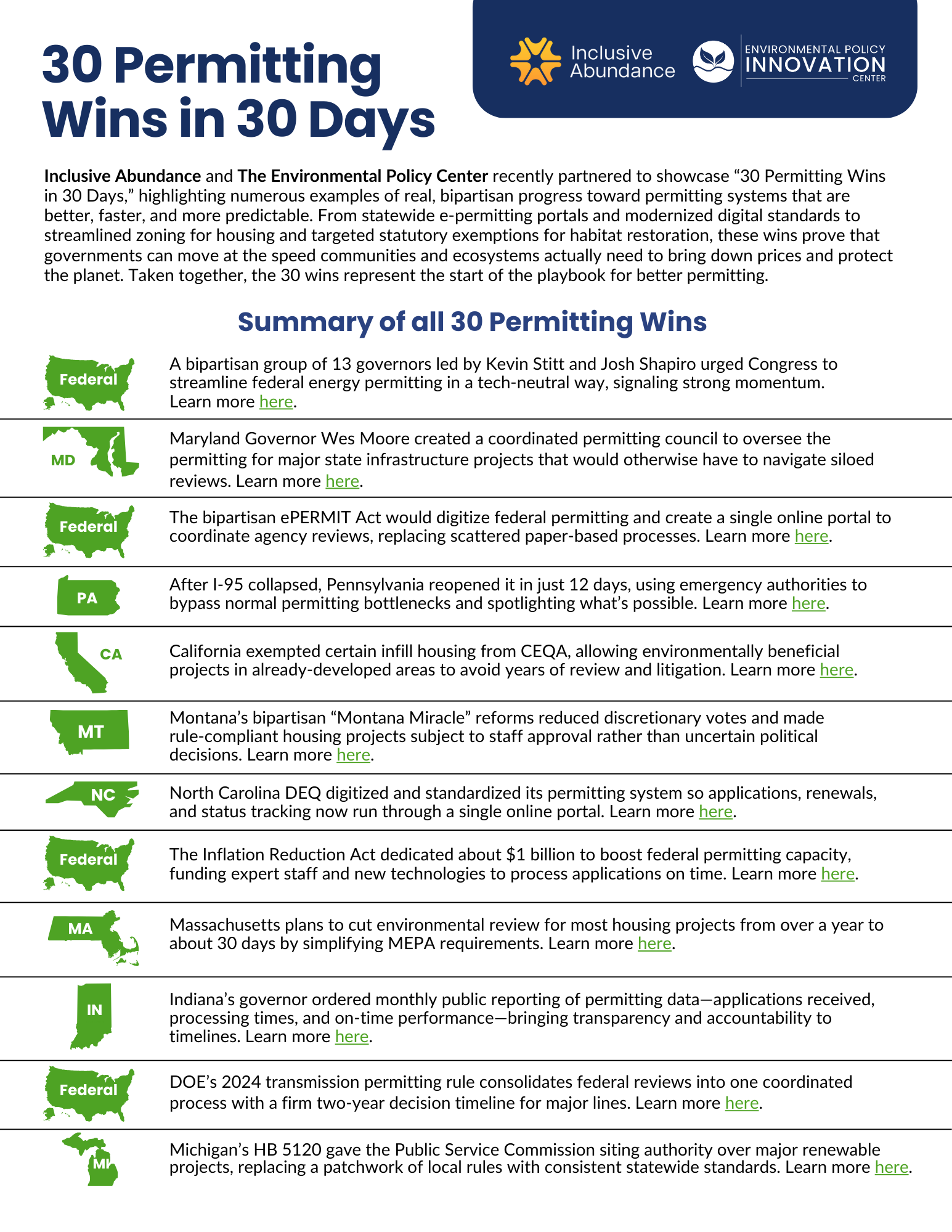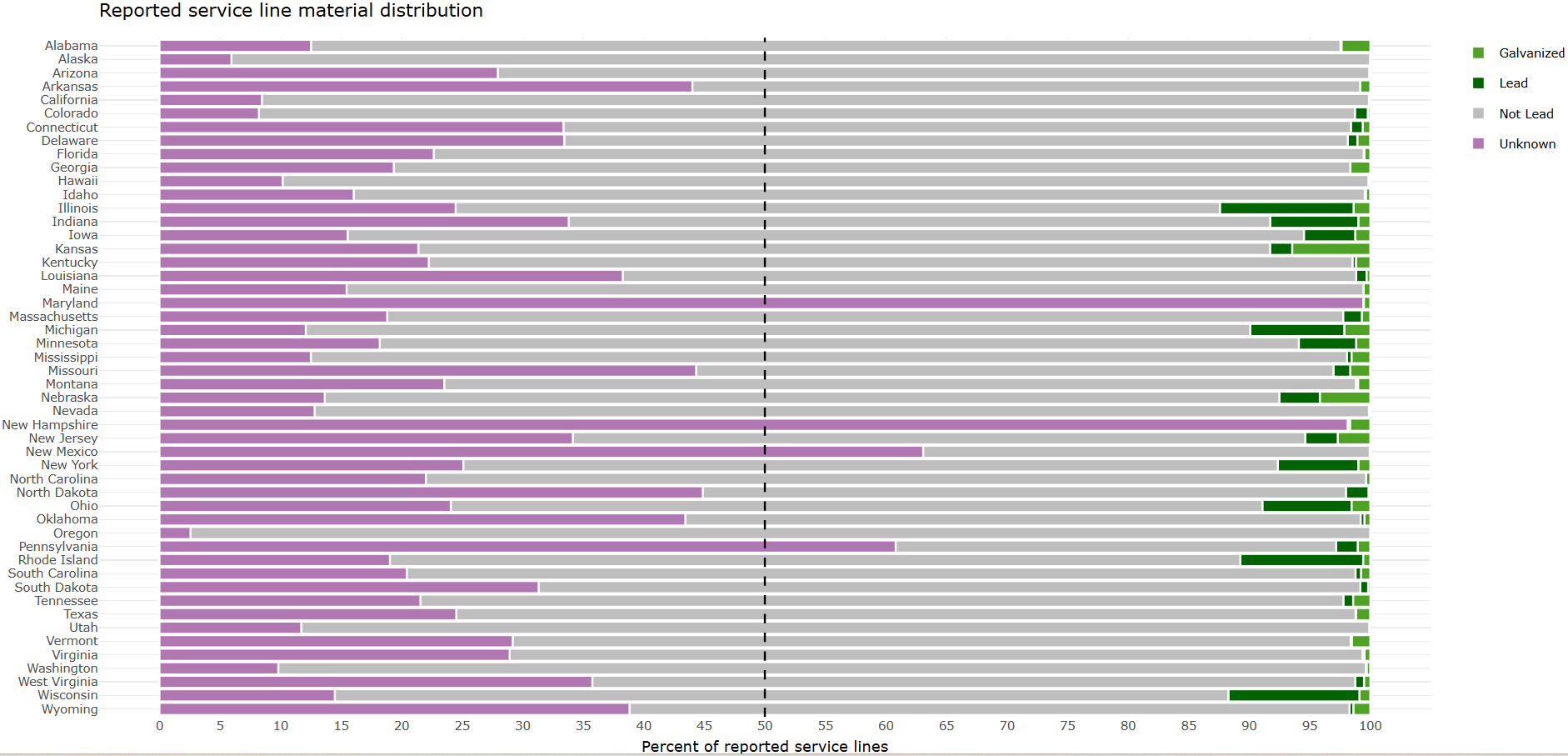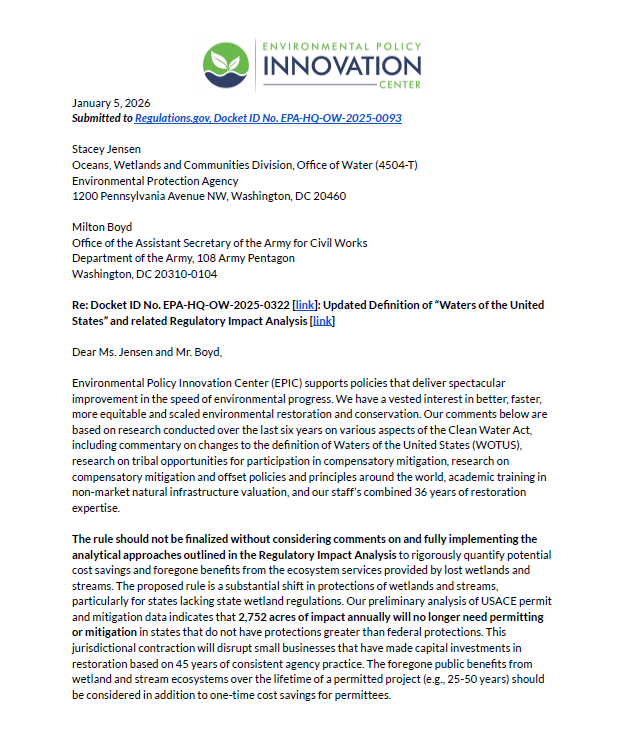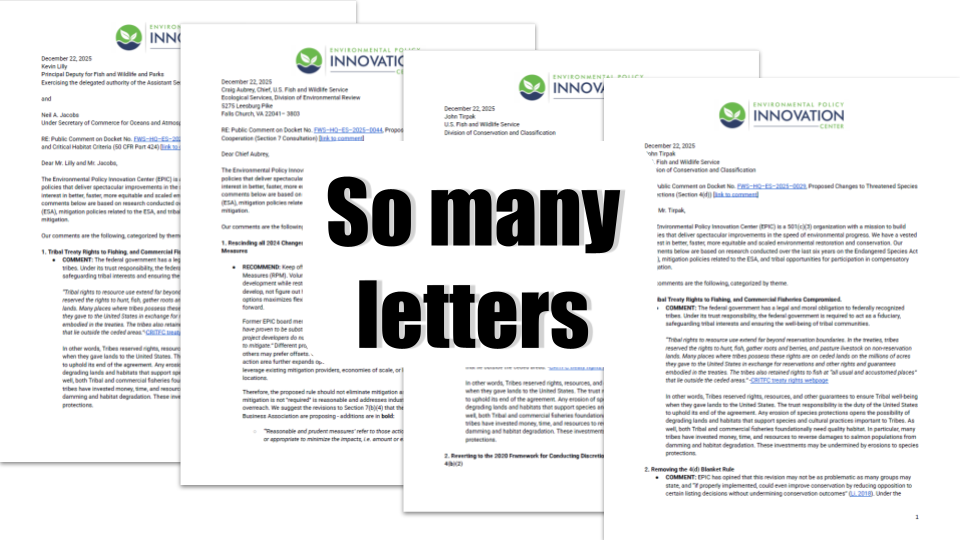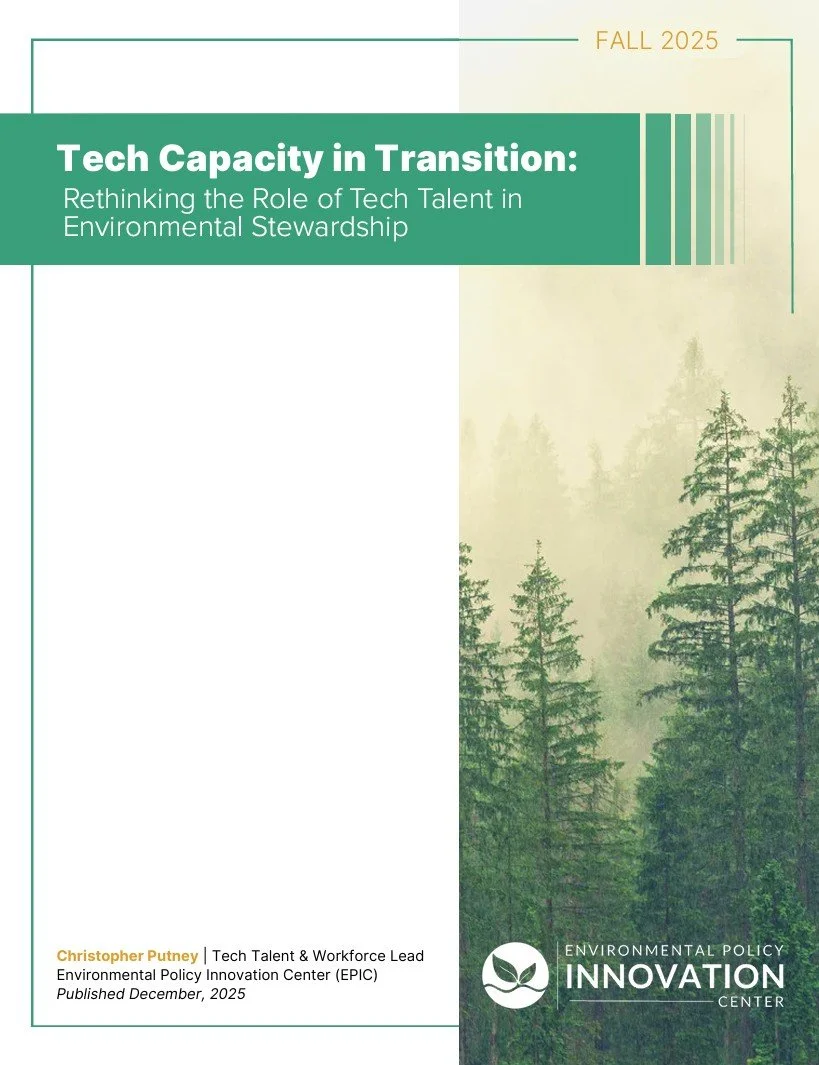Engagement on State Intended Use Plans
EPIC provides analysis and submits public comments on state Intended Use Plans (IUPs) in collaboration with other state groups and community-based organizations, offering specific recommendations to improve state policies.
Our comments focus on policies that determine which communities benefit from State Revolving Funds (SRFs), with the aim of directing more funding, particularly grants and principal forgiveness, to under-resourced communities. We also recommend how states can ensure their SRF investments support water systems and communities that are more resilient to financial concerns and external challenges.
Click on each state’s dropdown option below for access to our executive summaries and publicly available comments:
State Fiscal Year 2026 Comments
-
Drinking Water State Revolving Fund General Activities Intended Use Plan Comments
Drinking Water State Revolving Fund Intended Use Plan Covering Emerging Contaminants
-
Clean Water Fund Program’s Intended Use Plan Comments
-
Drinking Water State Revolving Fund General Activities Intended Use Plan Comments
State Fiscal Year 2025 Comments
-
-
Drinking Water State Revolving Fund Recommendations Utilizing EPIC's Texas Community Water System Prioritization Tool
Clean Water State Revolving Fund General Activities Intended Use Plan Comments
Drinking Water State Revolving Fund General Activities Intended Use Plan Comments
Drinking Water State Revolving Fund Intended Use Plan Covering Lead Service Line Replacement Comments
-
Drinking Water State Revolving Fund
-
Drinking Water and BIL Lead Service Line Replacement State Revolving Fund
-
Drinking Water State Revolving Fund Intended Use Plans Covering Emerging Contaminants and Lead Service Line Replacement Comments
-
Drinking Water State Revolving Fund
-
Drinking Water Revolving Loan Fund Program
State Fiscal Year 2024 Comments
State Fiscal Year 2023 Comments
-
Clean Water State Revolving Fund
Drinking Water State Revolving Fund
Lead-specific comments will be available soon
-
Clean Water State Revolving Fund
Drinking Water State Revolving Fund
-
Clean Water State Revolving Fund
Drinking Water State Revolving Fund
Public Comments: Co-Signed letter from We the People of Detroit
No separate IUP for Lead
-
Clean Water State Revolving Fund
Drinking Water State Revolving Fund
No separate IUP for Lead
-
Drinking Water State Revolving Fund
-
Drinking Water State Revolving Fund
Lead-specific comments will be available soon
-
Clean Water State Revolving Fund
Drinking Water State Revolving Fund





